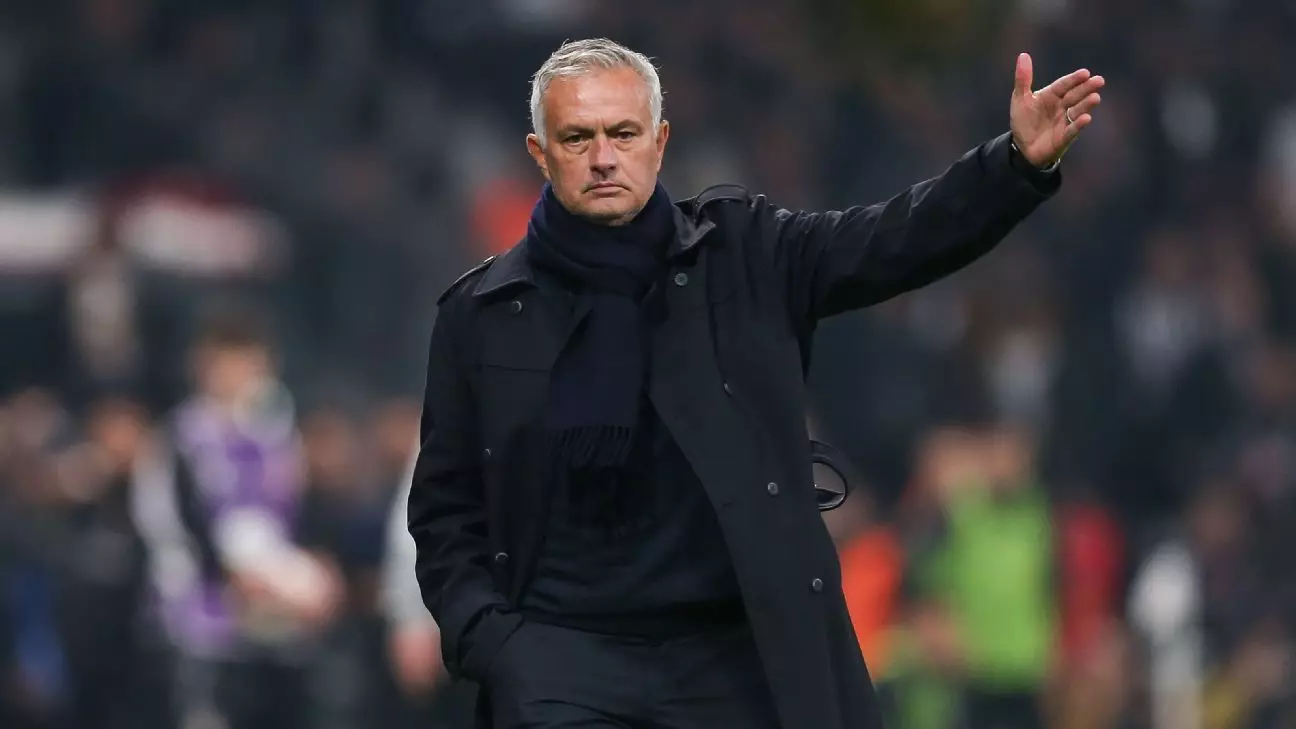In the world of football, rivalries often extend beyond the pitch, encapsulating a blend of personal and professional conflict. The latest chapter in the longstanding feud between José Mourinho and Pep Guardiola has resurfaced, reigniting passions and discussions surrounding fairness in the sport. The backdrop of their rivalry is the modern landscape of football, fraught with complexities like financial regulations and competitive integrity. Recently, Mourinho, the current manager of Fenerbahçe, countered Guardiola’s remarks regarding Manchester City’s integrity in relation to financial Fair Play (FFP) rules, calling for justice within the sport.
Mourinho’s emphatic assertion that his desire pertains to “justice in football” speaks volumes about the ongoing concerns regarding how FFP rules are enforced. He has voiced frustration over the disparities between wealthy clubs and smaller teams, highlighting a significant problem in professional football. According to Mourinho, smaller clubs face severe penalties for minor budget infractions, while larger clubs often manage to escape scrutiny or penalties, adopting the moniker “financial sharks.” This disparity fuels outrage among fans and coaches alike, as it raises questions about equality and fairness within the competitive framework of the league.
Mourinho’s assertion that his remarks were misinterpreted stems from his long-standing view that the current football establishment skews in favor of the financially dominant clubs. By juxtaposing his experiences with Roma — where he encountered budget constraints — he illustrates a personal connection to the wider issue. Echoing sentiments shared by numerous managers across Europe, he calls into question the very foundation of competitive balance within leagues dominated by clubs with vast resources.
In contrast, Guardiola’s response to Mourinho indicates a defensive posture, particularly as he faces mounting public relations challenges regarding Manchester City’s ongoing regulatory scrutiny. By raising his six fingers to represent his titles, Guardiola attempted to assert the legitimacy and historical success of his tenure at City. Yet, he quickly shifted focus to portray Mourinho as harboring ill will toward City, voicing concerns over potential relegation.
The confrontation between the two managers reveals underlying tensions considering their past encounters as well as differing philosophies on how success should be defined and sustained. Guardiola’s approach centers on achievement and accolades, often emphasizing the importance of winning, while Mourinho’s narrative advocates for ethical considerations, aiming for a level playing field. This divergence of views serves as a microcosm of the broader discussions surrounding competitive integrity in football.
Despite the harsh words exchanged in the media, Mourinho highlighted the absence of personal animosity between him and Guardiola, once again attempting to frame their rivalry within the context of professional respect. Noting their history together at Barcelona, he expressed admiration for Guardiola as an individual. However, whether this sentiment genuinely mitigates the tensions remains dubious, particularly given the public nature of their rivalry.
Guardiola, for his part, refrained from commenting directly on Mourinho’s latest statements, hinting at a preference to avoid escalating the tension further. His focus on Manchester City’s upcoming matches illustrates a desire to concentrate on sporting outcomes rather than engage in a potentially distracting war of words. Yet, as both managers continue to navigate through media scrutiny, the question remains whether they can truly maintain a sense of camaraderie amidst their competitive spirit.
The dialogue between Mourinho and Guardiola encapsulates a broader discussion regarding integrity and the future of football. As the UEFA Financial Fair Play regulations come under increasing scrutiny, the legitimacy of success is being continually challenged. Can the football community muster the collective will to enforce patience and fairness, or will financial power always overshadow merit?
As fans, players, and managers wrestle with these critical issues, the rivalry between Mourinho and Guardiola serves as a vivid reminder that football is as much about ethical considerations as it is about winning. Only time will tell how the outcomes of these discussions play out on both the pitch and within the boardrooms of major clubs around the world.


Leave a Reply